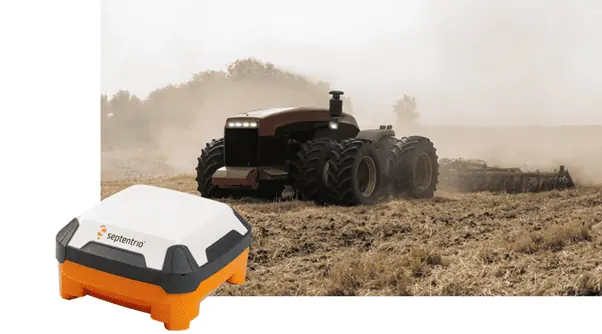
Septentrio has introduced the AntaRx-Si3, the first GNSS/INS (Inertial Navigation System) Smart Antenna on the market in an ultra-rugged enclosure.
The technology is designed for easy installation on machines such as agriculture robots. AntaRx-Si3 is the new member of the family of receivers leveraging FUSE+, which is designed to answer the need for position availability in tough industrial environments where GNSS signal reception may be temporarily compromised, such as under foliage. The IMU sensor in FUSE+ also improves positioning integrity and reliability, which is critical for autonomous systems.
“With AntaRx-Si3 you get a receiver delivering positioning information with a high level of availability and integrity, that you can install with minimal effort. This is especially beneficial for after-market upgrades. It also allows removal of this valuable component at the end of the day to protect against theft or vandalism,” said Danilo Sabbatini, Product Manager of GNSS/INS at Septentrio.
The AntaRx-Si3 smart antenna is robust inside and out. It is designed to be mounted outside on a machine for operation in harsh environments out in the field. Enclosed in an impact resistant polycarbonate IP69K housing it can handle high levels of shocks and vibrations. This multi-frequency receiver delivers Septentrio’s field proven high-accuracy RTK positioning down to the centimeter level. AntaRx-Si3 has a built-in 4G cell modem, so there is no need for additional modem integration to acquire high-accuracy corrections.
AntaRx-Si3 leverages Septentrio’s GNSS+ algorithms with advanced multipath mitigation, which allows uninterrupted operation in environments where satellite signals could be reflected off nearby machinery or high structures such as silos. It delivers positioning at a high update rate and low latency, which are critical for control loops in autonomous movement or rotation.

















